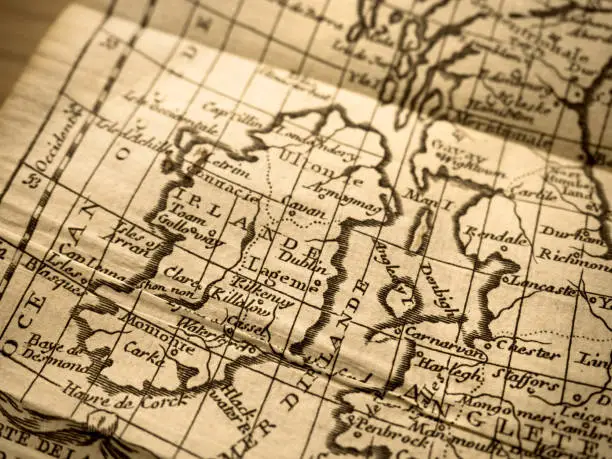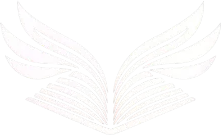The Erased Chapter of Irish History
The Recognized Identitie
Every group on the island of Ireland has a story—an origin, a lineage, a cultural memory. From the Anglo-Norman settlers to the British-Irish Unionist tradition, from historic minority communities to recent migrant families, each identity is traced, documented, and placed within Ireland’s broader historical narrative. Even those with complex or painful pasts are afforded space, legitimacy, and recognition.
The Traveller Erasure
Yet when it comes to Irish Travellers—arguably the oldest living branch of Gaelic Ireland—this recognition disappears. Their history is buried, denied, or deliberately confused. They have been wrongly conflated with the Roma, as if their identity originated elsewhere, outside the island.
The Systematic Erasure
This erasure is not accidental. It reflects the enduring influence of unchanged colonial institutions—in education, research, media, and governance—that never dismantled the frameworks built to control and assimilate. These same institutions continue to question the legitimacy of a people who refused to be reprogrammed, and who, by surviving outside the colonial order, exposed its deepest failures.
Why We're Defining These Identities
Every group on the island of Ireland has some form of recorded history. Their origins are traced, documented, and explained—whether through archives, state records, family trees, or academic research.
Except us.
Irish Travellers are the only community on this island who have been denied a clear and truthful origin. The stories told about us are often falsified, distorted, or based on colonial myths. We’ve been wrongly labelled as migrants, social dropouts, or a leftover group from the past. These narratives are not just wrong—they are harmful. They erase who we are: the last living Indigenous Gaels, carrying forward elements of Ireland’s original clan-based society that were almost entirely wiped out elsewhere.
That’s why we’ve created these foundational definitions.
They are not designed to put people into boxes. Identity changes. People move across boundaries—sometimes by force, sometimes by survival, sometimes by choice. Some Gaelic families became Norman. Some Normans became Irish. Some planters became Irish generations later. Others surrendered their Gaelic identity and absorbed the colonial mindset instead. Names and labels often tell one story, while lived experience tells another.
Even within the Traveller world, these lines can blur. Some individuals working in the third sector today act more like settled people, thinking and behaving in a way shaped by institutional culture. In some cases, they may not come from the Traveller community origins at all but have become attached to it over time—through marriage, career, or social influence—while their origins lie elsewhere.
This work is not about gatekeeping or claiming purity. It’s about restoring truth. These definitions help us understand where people come from, how identities have formed, and why Irish Travellers remain the most misrepresented group on this island.

Dictionary of Identities (TraVision Foundation)
Indigenous Gaels (Irish Travellers)
noun (plural)
Definition: A distinct Indigenous Gaelic population native to the island of Ireland, who have maintained elements of pre-colonial clan structure, oral tradition, kinship systems, and cultural practices that predate English conquest. Often mischaracterised as a nomadic group, their true identity is rooted in the survival of Ireland’s original clan-based society through colonisation and state assimilation efforts. This is an endonymal term reflecting ancestral continuity.
Native Irish (Colonised Settled)
noun (plural)
Definition: Descendants of Gaelic clans who, under colonial pressure, adopted fixed settlement, state religion, institutional schooling, and English-imposed identity structures. Though genetically and culturally Indigenous, they became “settled” through survival within a colonised society, particularly post-Cromwell and post-Famine. The term reflects a hybrid identity, born from resistance and adaptation.
Settled Irish (Post-Norman Lineages)
noun (plural)
Definition: Descendants of Anglo-Norman settlers who arrived in Ireland from the 12th century and retained English identity and loyalty for centuries. Though some intermarried or adopted local customs, many did not identify as Irish until the foundation of the Irish Free State in 1922, at which point they became absorbed into the broader settled population. Considered a transitional identity between colonial and native paradigms.
Anglo-Irish
noun (plural)
Definition: A historically privileged class in Ireland descended from English landowners and administrators, typically Protestant and aligned with British colonial power. Associated with the Ascendancy, they held political and economic control until the early 20th century and often identified as English in Ireland rather than Irish. An exonym-turned-historical category.
Irish in the North
noun (plural)
Definition: Native Gaelic communities residing in the six counties of the north of Ireland, who maintained strong cultural, linguistic, and historical ties to Indigenous Ireland despite Partition and abandonment by the southern state post-1922. Their identity includes resilience under British rule and preservation of Gaelic heritage under systemic discrimination.
British-Irish (Unionist Tradition)
noun (plural)
Definition: Communities primarily in the north of Ireland who identify as British, often descended from English and Scottish settlers planted during the 17th-century colonial plantations. Politically aligned with unionism and loyalism, they uphold cultural, religious, and civic affiliations with the United Kingdom and often reject Irish national identity. This identity reflects a retained exonymal loyalty.
New Irish (Migrant Communities)
noun (plural)
Definition: People from outside Ireland who have settled on the island in recent decades, including those of African, Asian, Eastern European, Middle Eastern, and Latin American descent. Many arrived through migration, asylum, or economic opportunity and now contribute to Ireland’s cultural and demographic transformation. Term reflects a newly forming endonymal space within Irish society.
Diaspora Irish (Irish Abroad)
noun (plural)
Definition: People of Irish origin or descent living outside of Ireland, including emigrants and their descendants across the UK, US, Canada, Australia, Argentina, and beyond. Their identities reflect forced migration, cultural survival, and enduring emotional, historical, and genealogical ties to Ireland.
Mixed / Dual-Heritage Irish
noun (plural)
Definition: Individuals with more than one cultural or ancestral background linked to Ireland. This includes people with both Traveller and settled heritage, migrant and native parentage, or combinations of Indigenous and settler lineages. Their presence reflects the complexity and ongoing evolution of Irish identity.
Romani (in Ireland)
noun (plural)
Definition: A distinct ethnic group with origins in Northern India, present in small numbers in Ireland. Often misidentified as Travellers, they maintain unique linguistic and cultural traditions and are not historically or genetically connected to Indigenous Gaelic society.
Stateless / Refugee Communities in Ireland
noun (plural)
Definition: Individuals residing in Ireland without formal citizenship or national identity, often due to displacement, conflict, or persecution. Includes asylum seekers and refugees living under temporary protection, many of whom face systemic barriers to recognition, stability, and inclusion.
Historic Minority Communities (Jewish, Huguenot, etc.)
noun (plural)
Definition: Long-established non-Gaelic communities who settled in Ireland before the modern era, including Jewish, Huguenot, Moravian, and Quaker groups. Though small in number, they contributed significantly to Irish social, cultural, and commercial life and are part of Ireland’s diverse historical fabric.
Black Irish / Asian Irish (Generational Communities)
noun (plural)
Definition: Irish-born or long-resident individuals of African, Caribbean, or Asian descent who are culturally and legally Irish. Often raised within Irish institutions and communities, they may still face exclusion or misrecognition due to racialised perceptions of Irish identity.
Irish Travellers (in England and America)
noun (plural)
Definition: Descendants of Indigenous Gaelic clans who migrated from Ireland to England or the United States, often due to economic displacement, discrimination, or forced relocation. In both countries, they retained a distinct identity rooted in Irish clan structures, oral tradition, and cultural practices. In America, they continue to identify as Irish Travellers rather than Irish-Americans, preserving elements of language, kinship, and custom that reflect their pre-colonial Gaelic origins.
Traveller Diaspora
noun (plural)
Definition: The global population of Irish Travellers living outside of Ireland, primarily in countries such as the United Kingdom and the United States. Though geographically removed from Ireland, members of the Traveller diaspora maintain a strong cultural identity, often preserving clan-based social organisation, traditional occupations, and communal values that mirror those of their counterparts in Ireland. Their existence confirms the continuity of Gaelic Indigenous culture beyond national borders.

